Which local currency you should use when going to a specific country is one of the most significant subjects that travelers should search before visiting as you are not going to get too far without knowing anything about its currency. So, what’s the story on money in Vietnam? Ecohost will take away all your confusions regarding which currency to use as well as money tips during your Vietnam eco-tours.
Vietnam Money Exchange Rate
The first step to use the Vietnam Dong (VND) properly is to understand the exchange rate. The easiest way is to bear in mind that $1 ≈ 23, 000 VND and the exchange rates will fluctuate.
Except for US Dollars, many banks in Vietnam still exchange VND for these international currencies.
• British Pound: 1 GBP ≈ 29,000
• Euro: 1 EUR ≈ 25,000 VND
• Canadian Dollar: 1 CAD ≈ 16,000 VND
• Japanese Yen: 1 JPY ≈ 200 VND
• Singaporean Dollar: 1 SGD ≈ 16,000 VND
• Taiwanese Dollar: 1 TWD ≈ 500 VND
• Hong Kong Dollar: 1 HKD ≈ 3,000 VND
• Swiss Franc: 1 CHF ≈ 22,000 VND
• New Zealand Dollars: 1 NZD ≈ 15,000 VND
• Thai: 1 THB ≈ 700 VND
• Australian Dollar: 1 AUD ≈ 17,000 VND
Where to Exchange Your Vietnam Money
Money exchange shops and jewelry stores are at the best to get the most reasonable rates. If you want to be more secure about your transaction, consider exchanging your money at bank branches or ATM. However, it takes more time to carry out the transactions in the bank since you must fill up some forms and present required documents (passport). Some banks I would like to recommend to you are Vietcombank (VCB), Asia Commercial Bank (ACB), Techcomebank, Military Commercial Joint Stock Bank (MB Bank), HSBC and Exim Bank.
In case you prefer to exchange money in the exchange shops and jewelry stores, consider the following trustful ones.
Quoc Trinh Gold Shop
• Address: 27 Ha Trung, Hoan Kiem District, Ha Noi, Vietnam
• Phone: +84 4 3826 8856
• Opening hours: Sunday to Friday 08:00 – 22:00
Hanoi Money Exchange
Address: 19B Hang Be, Hoan Kiem District, Ha Noi, Vietnam
• Phone: +84 4 3990 1733
• Opening hours: Monday to Saturday 09:00 – 18:00*
Kim Linh Jewelry
• Address: 67 Hang Bac, Hoan Kiem District, Ha Noi, Vietnam
• Phone: +84 4 3825 3649
• Opening hours: Monday to Saturday 8:30 – 18:00
Identify the Vietnam Currency Value
One thing you need to know is that the Vietnamese have stopped using coins since 2011. To make it easier to remember, I will offer 2 groups based on the material of the notes including the paper family and the polymer family.
The Paper Family
VND 5,000
VND 2,000
VND 1,000
VND 500
The Polymer Family
This is “member note” from the middle and upper class, so you will be more powerful in your pocket if it is filled up with the notes from the polymer. However, be careful when you use the 20,000 VND and 500,000 VND because the colors of those are similar to each other, only different when it comes to the shade.
VND 500,000
VND 200,000
VND 100,000
VND 50,000
VND 20,000
VND 10,000
Tips for Using Vietnam Money
Check Your Money Carefully
As a fact that the currency system is unfamiliar to you, some bad sellers try to scam you. To stop being scammed, check the zeros before you hand the notes in and after you receive the change.
Make Mistakes due to the Material
The polymer money can stick together easily, especially when they are wet, so ensure that you flick the notes carefully in order not to pay more (or less) than you have to.
Use the Letter K instead of Thousand
It is common for you to see lots of price tags with the letter “K” following the number. For instance: 50k, 100k, or 500k. It is just a way that Vietnamese simplify the amount. The “K” symbolizes a thousand. It means that 50k = 50,000d; 100k = 100,000d; 500k = 500,000d, etc.
The Purse Tip
To avoid paying the wrong notes, especially the confusing couple 500k and 20k or 200k and 10k, I truly recommend that you take advantage of purse’s 2 compartments to separate the big money and little one.
Avoid Black Market
It is for sure that you don’t want to become a victim of the scam, so avoid changing currency in the black market.



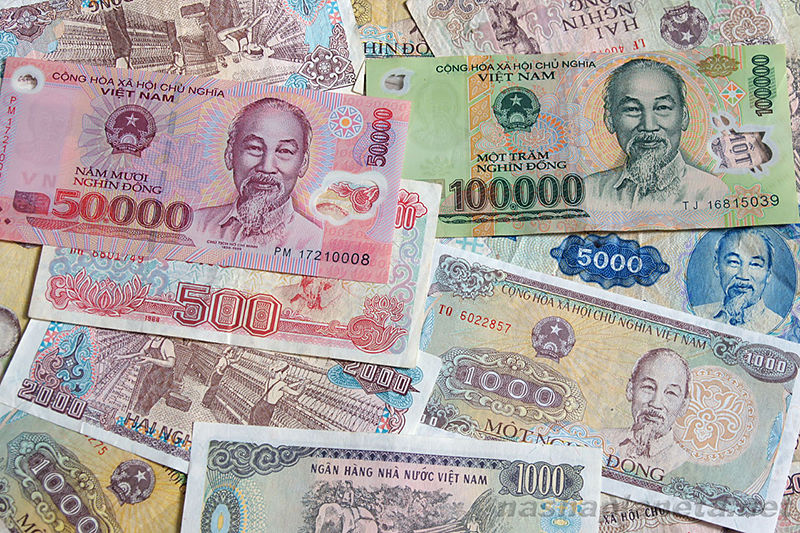
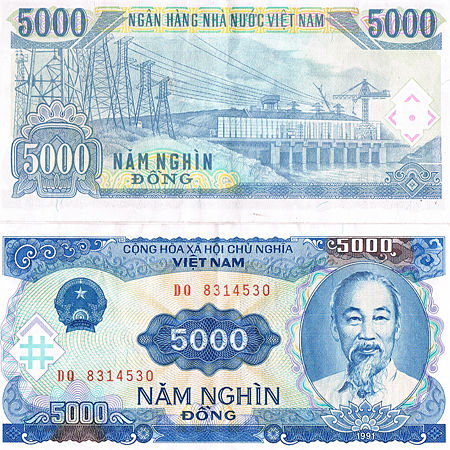
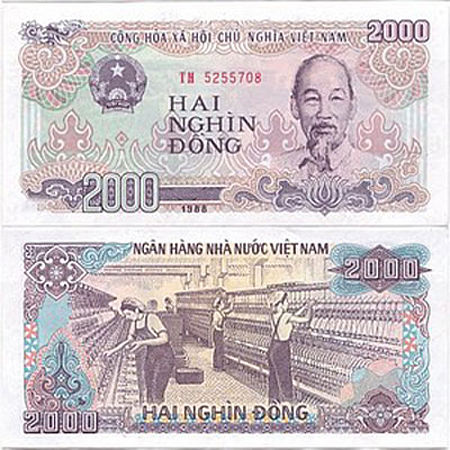
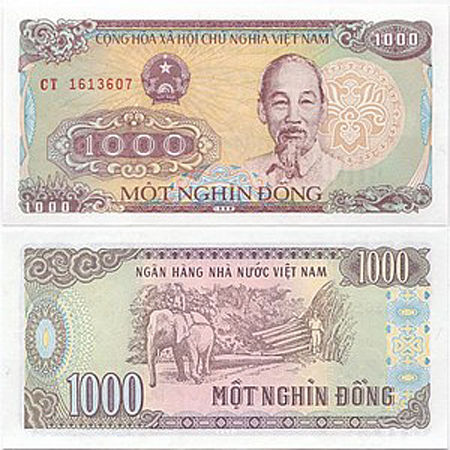
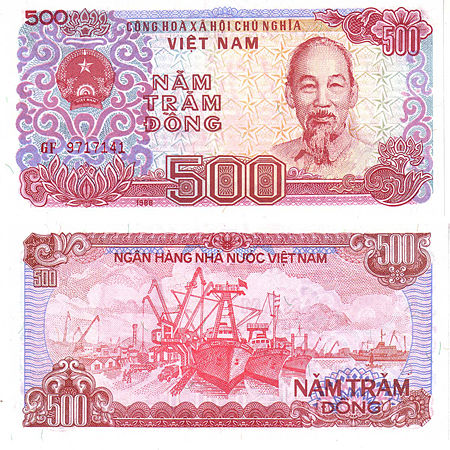
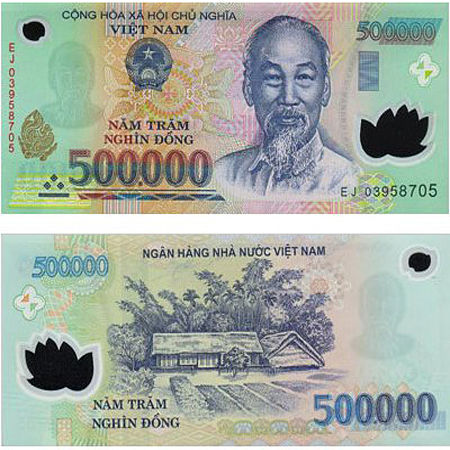
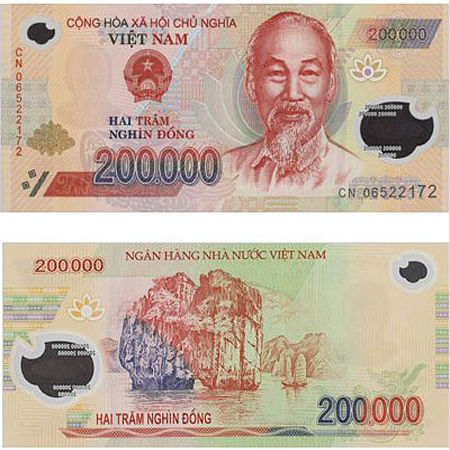
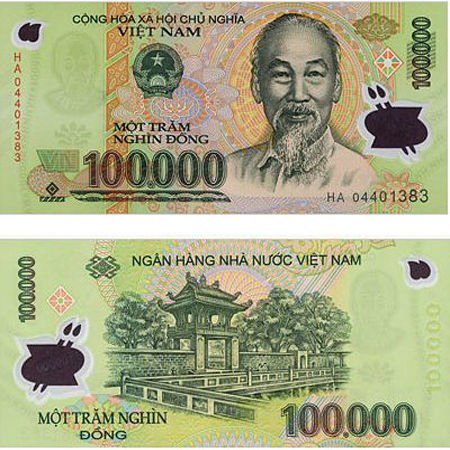
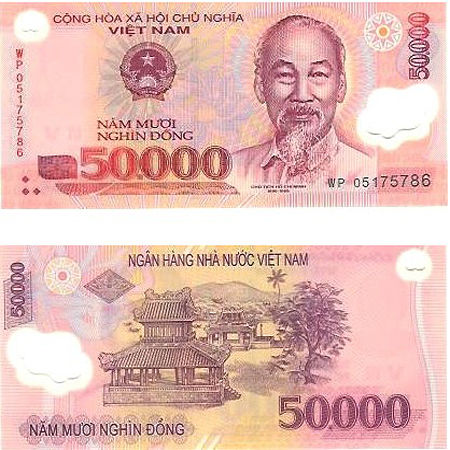
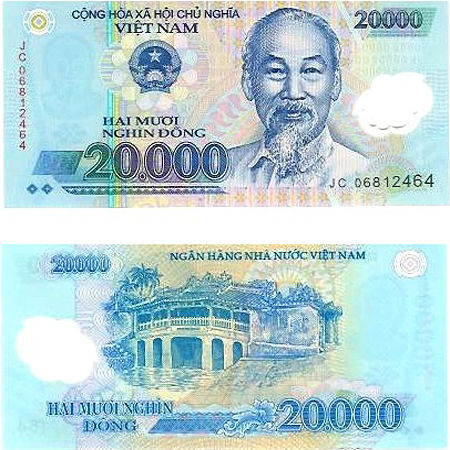
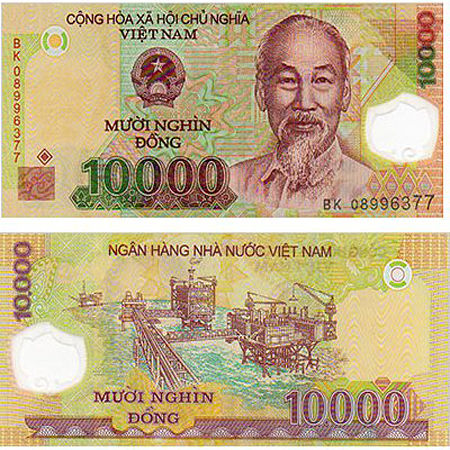

 Chat Facebook Ngay!
Chat Facebook Ngay!

 Chat Zalo Ngay!
Chat Zalo Ngay!
Comment (0)